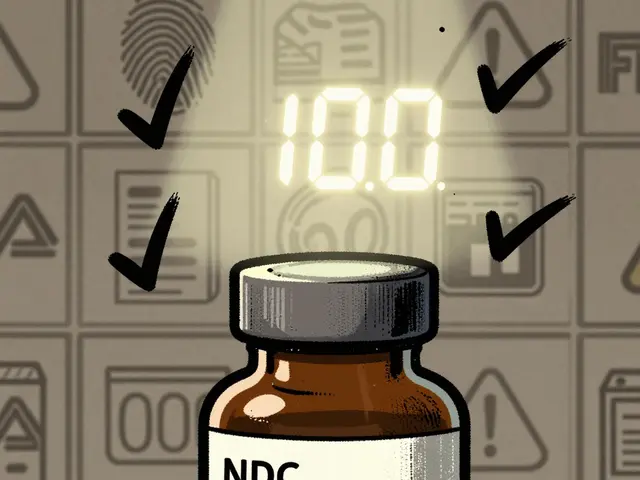
Understanding the relationship between alcohol consumption and pancreatic cancer is crucial for anyone looking to take control of their health. Pancreatic cancer is one of the most aggressive types of cancer, and early detection is often difficult. Knowing how certain behaviors, like alcohol drinking, impact your pancreas could make a significant difference in prevention efforts.
In this article, we’ll break down the science behind pancreatic cancer and explore how alcohol interacts with the pancreas. You’ll also find key research findings that shed light on this connection, along with some practical tips for reducing your risk.
- The Basics of Pancreatic Cancer
- How Alcohol Affects the Pancreas
- Research Findings and Statistics
- Tips for Reducing Risk
The Basics of Pancreatic Cancer
Pancreatic cancer starts in the tissues of the pancreas, an organ in your abdomen that lies behind the lower part of your stomach. The pancreas plays an essential role in digestion and blood sugar regulation. When cells in the pancreas begin to grow out of control, they can form a tumor, disrupting the pancreas's normal functions and potentially spreading to other parts of the body. It's one of the most aggressive and deadly types of cancer, often diagnosed at a late stage due to the lack of early symptoms.
There are two main types of pancreatic cancer: exocrine tumors and endocrine tumors. Exocrine tumors are more common and usually start in the cells lining the pancreatic ducts. These ducts carry digestive enzymes out of the pancreas, making exocrine tumors particularly problematic. In contrast, endocrine tumors, also known as pancreatic neuroendocrine tumors, are rarer and begin in the hormone-producing cells of the pancreas.
One of the significant challenges with pancreatic cancer is that its early symptoms are subtle and easily mistaken for other conditions. Common signs include jaundice, weight loss, abdominal pain, and appetite loss. By the time these symptoms become noticeable, the cancer is often advanced, making early detection crucial. Sadly, there is no widespread screening test for pancreatic cancer like there is for breast or colon cancer.
Dr. Anne Marie Lennon, a gastroenterologist, stated, "Pancreatic cancer's symptoms are often nonspecific, which means people can dismiss them or attribute them to less severe conditions."
Several risk factors contribute to the likelihood of developing pancreatic cancer. Age is a significant factor, as most people diagnosed with this cancer are over 65. Family history and genetics also play a role, with certain inherited gene mutations increasing the risk. Lifestyle factors, such as smoking, obesity, and a diet high in red and processed meats, can also contribute to pancreatic cancer.
Despite these risk factors, the exact cause of pancreatic cancer remains unknown. It's often a combination of genetic and environmental factors. Researchers are continually seeking to understand the underlying mechanisms better to develop more effective treatments and, ideally, preventive measures.
Advancements in medical research, like improved imaging techniques and understanding of cancer biology, are giving hope to patients and healthcare providers. New treatments targeting specific genetic mutations and the tumor's microenvironment are in development. These advancements bring critical insights into how pancreatic cancer can be managed more effectively, improving outcomes for future patients.
How Alcohol Affects the Pancreas
Alcohol is known to have a significant impact on various organs within the body, and the pancreas is no exception. When alcohol is consumed, it passes through the digestive system where it is eventually processed by the liver. Nevertheless, the pancreas also takes a considerable hit during this process. The pancreas is responsible for releasing enzymes that aid in digestion, as well as hormones such as insulin that help regulate blood sugar levels.
Chronic alcohol consumption can lead to pancreatitis, a condition characterized by inflammation of the pancreas. This inflammation can cause the pancreas to release its digestive enzymes prematurely, leading to tissue damage. In the most severe cases, these enzymes can begin to digest the pancreas itself. Studies show that heavy drinkers have a much higher incidence of both acute and chronic pancreatitis compared to non-drinkers, often setting the stage for further complications, including pancreatic cancer.
The link between alcohol and pancreatic cancer becomes even more apparent when considering the role of acetaldehyde, a toxic byproduct of alcohol metabolism. Acetaldehyde is a known carcinogen that can damage DNA and proteins in the cells. Over time, this damage can cause cells in the pancreas to become cancerous. This heightened risk isn’t just limited to heavy drinkers; even moderate alcohol consumption can increase the likelihood of developing pancreatic cancer, although the risk multiplies with higher levels of consumption.
Research conducted by the American Cancer Society indicates that individuals who consume three or more alcoholic drinks per day have a dramatically increased risk of developing pancreatic cancer. It's worth noting that the type of alcohol—beer, wine, or spirits—makes little difference, as it is the ethanol content in these drinks that leads to health issues.
“The risk of pancreatic cancer is more than doubled in those who drink alcohol heavily,” states Dr. Michelle Anderson, a renowned gastroenterologist from the University of Michigan. “Increasing awareness about the potential risks associated with alcohol consumption is key to prevention.”
High alcohol intake is also associated with other lifestyle factors that compound the risk of pancreatic cancer. People who drink heavily are more likely to smoke, have poor diets, and suffer from obesity—all of which are known risk factors for pancreatic cancer as well. This combination creates a dangerous cocktail that significantly compromises pancreatic health.
Furthermore, alcohol can interfere with the absorption of nutrients essential for pancreatic health, such as vitamins B and C, selenium, and magnesium. Chronic alcohol use can lead to deficiencies in these nutrients, escalating the risk of various health conditions, including pancreatic cancer. Additionally, alcohol-induced liver damage can impair the liver's ability to detoxify the body, thereby increasing the burden on the pancreas.
Given the seriousness of the risks, it is vital to approach alcohol consumption responsibly. Moderate drinking, defined as one drink per day for women and up to two for men, may not pose a significant threat, but the line between moderate and excessive drinking can be thin and easily crossed. Understanding these risks and practicing moderation, or even considering abstinence, can provide a critical factor in maintaining pancreatic health and reducing cancer risk.
Research Findings and Statistics
When it comes to understanding how alcohol consumption affects the risk of pancreatic cancer, recent studies have provided significant insights. Researchers have discovered that heavy drinking can lead not only to chronic pancreatitis but also to a higher likelihood of developing pancreatic cancer. For instance, a study published in the Journal of the National Cancer Institute found that individuals who consume more than three alcoholic drinks daily have a 1.5 times increased risk of developing pancreatic cancer compared to non-drinkers.
The findings are supported by various other studies, such as those conducted by the International Agency for Research on Cancer (IARC). Their research shows that alcohol's toxic metabolites can damage the pancreatic cells, paving the way for cancerous transformations. Moreover, it is also noted that heavy drinking can cause inflammation and promote an environment conducive to cancer growth. A meta-analysis involving over 20,000 participants highlighted that both the quantity and duration of alcohol intake are crucial factors in this heightened risk.
Another critical element discovered through extensive research is that the risk is compounded by other lifestyle factors. For example, coupled with smoking, alcohol dramatically increases the probability of cancer cells forming in the pancreas. According to the American Cancer Society, someone who smokes and drinks heavily is at a particularly high risk, making it essential to monitor both habits.
"Chronic heavy drinking has been shown to increase the risk of pancreatic cancer through various pathways, including inflammation and direct cellular damage," says Dr. Susan Gapstur, Vice President of Epidemiology at the American Cancer Society.
Recent advancements in technology have enabled scientists to track and analyze patterns in cancer incidence accurately. Newer studies that use genetic markers have provided more detailed insights, proving that some people might be more genetically predisposed to developing cancer when exposed to alcohol compared to others. These groundbreaking revelations offer a promising path to more personalized preventive strategies in the future.
On the statistical front, the numbers paint a stark picture. In the United States alone, it is estimated that around 60,000 people are diagnosed with pancreatic cancer each year, and a significant percentage of these cases are linked to long-term heavy alcohol use. Public health organizations worldwide are taking note and emphasizing the need for better educational programs about the risks associated with excessive alcohol consumption.
Tips for Reducing Risk
When it comes to lowering your risk of pancreatic cancer, making informed lifestyle choices is key. One of the most significant factors is limiting or avoiding alcohol consumption. The pancreas is an essential organ that plays a vital role in digestion and blood sugar regulation, and excessive alcohol intake can cause inflammation and damage that increase cancer risk.
Avoiding binge drinking and keeping alcohol consumption within recommended guidelines is the first step. For men, this means no more than two drinks a day, and for women, no more than one. But it's not just about quantity; regular, heavy drinking over time poses a substantial risk to your pancreatic health. Monitoring your drinking habits is crucial.
Additionally, a balanced diet rich in fruits, vegetables, and whole grains can support pancreatic health and reduce cancer risk. These foods contain antioxidants and other compounds that may protect cells from damage. Including lean proteins and healthy fats while avoiding highly processed foods and sugary drinks can make a substantial difference.
Maintaining a healthy weight is another critical factor. Obesity has been linked to an increased risk of pancreatic cancer, so incorporating regular physical activity into your routine can help. Aim for at least 150 minutes of moderate exercise or 75 minutes of vigorous exercise each week. This can range from brisk walking and cycling to swimming and aerobics.
Smoking is another significant risk factor for pancreatic cancer. If you smoke, quitting is one of the best things you can do for your pancreas and your overall health. The harmful chemicals in cigarettes can cause damage to the pancreas and other organs, significantly increasing your cancer risk. Seek support from health professionals if you're finding it difficult to quit smoking.
Staying informed about your family history can also play a pivotal role in prevention. If you have a family history of pancreatic cancer, you might be at a higher risk. Discuss your family history with your healthcare provider and consider regular screenings or genetic counseling to understand your personal risk better.
Lastly, regular check-ups and being proactive about your health can help detect any early signs of pancreatic issues before they develop into something more severe. Pay attention to symptoms like unexplained weight loss, jaundice, or persistent stomach pain, and consult with a healthcare professional if you notice any changes.
By taking these steps, you can significantly reduce your risk of developing pancreatic cancer and support your pancreas's overall health. Remember, prevention is always better than cure, so take control of your health today.




Tanya Willey
May 17, 2024 AT 19:38sarat babu
May 18, 2024 AT 15:21Richard H. Martin
May 19, 2024 AT 11:01Tim H
May 19, 2024 AT 13:37Umesh Sukhwani
May 20, 2024 AT 05:23Vishnupriya Srivastava
May 21, 2024 AT 04:30Matt Renner
May 22, 2024 AT 00:36Ramesh Deepan
May 22, 2024 AT 02:04Wayne Rendall
May 22, 2024 AT 03:56Ifeoluwa James Falola
May 22, 2024 AT 16:28Adam Phillips
May 23, 2024 AT 03:23Julie Lamb
May 23, 2024 AT 12:19april kakoske
May 23, 2024 AT 15:07Pradeep Meena
May 24, 2024 AT 10:54Rishabh Jaiswal
May 24, 2024 AT 18:01May Zone skelah
May 25, 2024 AT 01:08Dale Yu
May 26, 2024 AT 00:18Kshitij Nim
May 26, 2024 AT 03:40Scott Horvath
May 26, 2024 AT 07:17Armando Rodriguez
May 27, 2024 AT 01:40